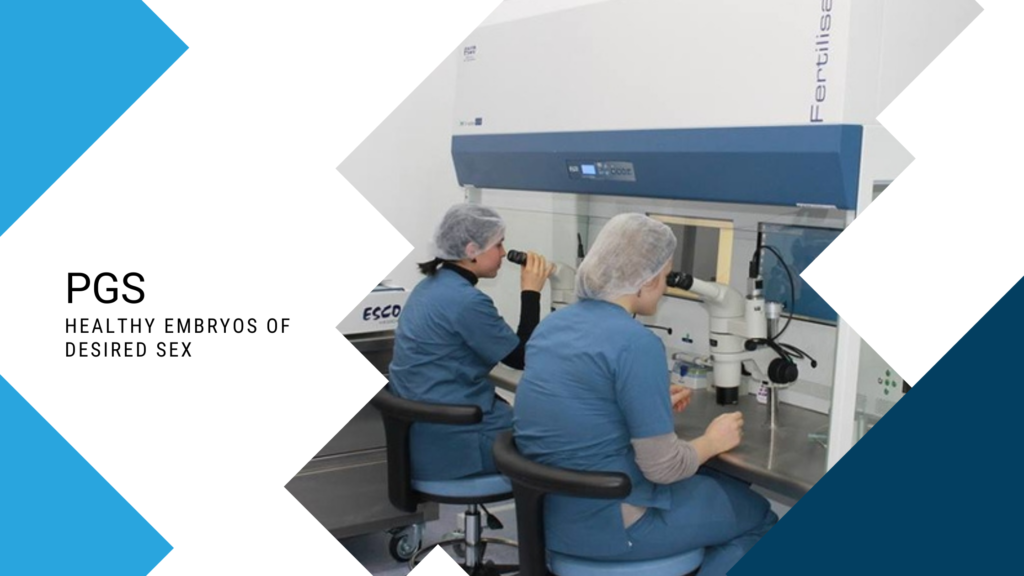
Preimplantation genetic screening (PGS) in Georgia is a genetic test performed on embryos to detect chromosomal abnormalities. Only chromosomally normal embryos (i.e. embryos with the right number of chromosomes) will be transferred to the patient’s uterus.
PGS testing is usually done on day five after the egg retrieval. A single cell will be removed from the embryos and sent to our lab for detailed analysis. While waiting for the test results, embryos will be cryopreserved through vitrification (flash freezing). Results are usually available 7–10 days after the cell extraction. Embryos are graded and the best one(s) are transferred into the uterus. Additional good-quality embryos may be frozen and stored for future use.
Who should do PGS in Georgia?
PGS testing in Georgia is recommended for individuals who are at risk of producing chromosomally abnormal embryos. These may include:
- Women with a family history of a genetic condition that can be passed onto the child
- Women after the age of 35
- Women with multiple failed IVF cycles
- Women who have experienced several pregnancy losses (recurrent miscarriage)
Does PGS in Georgia improve IVF success rates and how?
PGS testing increases the chance of IVF success through various mechanisms.
1. Successful Implantation
Healthy embryos are more likely to attach to the uterine lining and develop into a healthy baby after being screened and carefully selected for implantation based on their quality and health.
2. Preventing miscarriage
PGS can reduce the risk of miscarriage by selecting only embryos that are disease-free.
3. Fewer IVF cycles
Healthy embryos increase the chances of a successful pregnancy and reduce the number of cycles a couple/individual should undergo.
4. Lower risk of multiple pregnancies
A multiple pregnancy is significantly reduced with PGS as it allows you to choose only the best embryo(s) for pregnancy.
How accurate is PGS testing?
PGS tests in Georgia are >97% accurate. IVF with PGS reaches a 70% success rate per cycle.